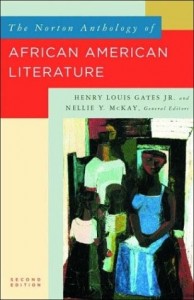Georges
 Character: Georges
Character: Georges
Source Text: Séjour, Victor. “The Mulatto.” The Norton Anthology of African American Literature. Ed. Henry L. Gates Jr. and Nellie Y. McKay. Second ed. N.p.: Penguin Classics, 2003. Print.
Entry Author: Crystal Carpenter
The tragic mulatto/a is normally characterized as a mixed-race figure who finds him- or herself depressed, suicidal, fratricidal, and/or patricidal due either to a lack of identity or to an innate, biological corruption. According to the stereotype, these individuals do not know whether they fit into white society or into black society and are often made to choose between their dual identities, passing either into whiteness (the most familiar trope) or into blackness (Daut 2).
The tragic mulatto, based on gender, is depicted differently. Both have similar aspects but men usually have an oedipal complex. The plot for a male tragic mulatto usually goes through a pattern of identity confliction, loss, power reversal, revenge and rebellion (and sometimes death). Georges use his revenge on Alfred as a way to reverse Alfred’s power over him, and rebelling against his father in an emblematic way. Any slave born out of “the violation of identity caused by miscegenation” (Daut 12) becomes more intense in their revenge and need to kill – as a way to sever the ties between the absent father. Once Georges has reversed the power roles and now holds Alfred’s fate in his grasp, he will seek justice for his mother, wife, and himself by making Alfred the victim. After Georges has discovered that Alfred is his father he commits his final act as the tragic mulatto, taking his own life. Georges as the tragic mulatto stirs mixed emotions within the reader, because his fictional story as a mixed race slave becomes real to the reader. The motivation of his actions was not to kill for the sake of it, but to right the wrong Alfred would not. If Georges had known Alfred was his father he would not have killed him so readily. This is what makes Georges so tragic he became entwined in a false identity of passionate revenge, and never had the chance to mend his own identity.
Work Cited
Daut, Marlene L. “”Sons of White Fathers”: Mulatto Vengeance and the Haitian Revolution in
Victor Séjour’s “The Mulatto”.” Nineteenth-Century Literature 65.1 (2010): 1-37. JSTOR.
Web. 8 Nov. 2013.
